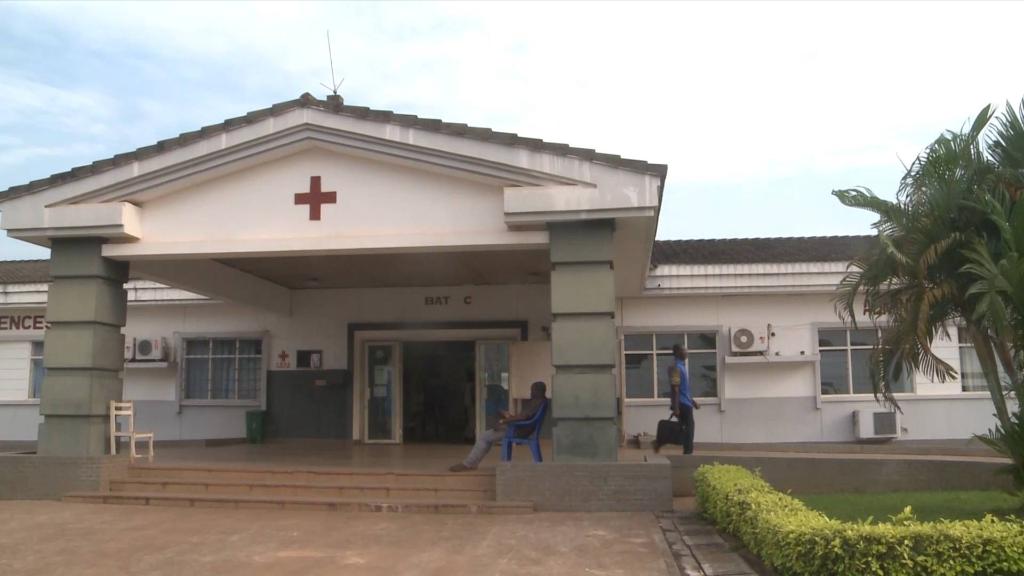* America took eight years, eight months and 29 days to end its military occupation of Iraq, with the last combat troops leaving Iraq on Dec. 18, 2011. The war was finite by calendar, but no one can tell how long it will take for the Iraqi victims to heal the wounds inflicted by invaders.
* The war and ensuing violence in Iraq were estimated to have killed more than 200,000 civilians and left over 9 million others displaced.
* Under the U.S. forces' lenient "rule of engagement," many innocent Iraqi civilians were gunned down on the streets or at home.
BAGHDAD, March 20 (Xinhua) -- In the town of Dhuluiyah, about 90 km north of the Iraqi capital Baghdad, Sondos al-Lami still kept the bullet holes, in the kitchen floor, left by U.S. soldiers who had shot dead her husband in a morning almost 20 years ago.
"It was the dawn of Oct. 18, 2003, the worst day of my life. Suddenly a lot of American soldiers barged into our house," the 50-year-old woman recalled. Her face was simmered with anger and pain.
Al-Lami said the soldiers did not ask any questions before opening fire on her husband right in front of her and their children trembling with fear. The American troops later only offered a brief apology for what they called a "mistake."
"I left the bullet holes as they are on the tiles in the kitchen. I want them to remain a witness to the brutality and barbarism of the U.S. occupiers," al-Lami told Xinhua.
Al-Lami is just one of the millions of Iraqis whose lives were turned upside down when the United States and its allies launched the illegal invasion of Iraq on March 20, 2003. Two decades later, the horror, anguish and trauma still linger.
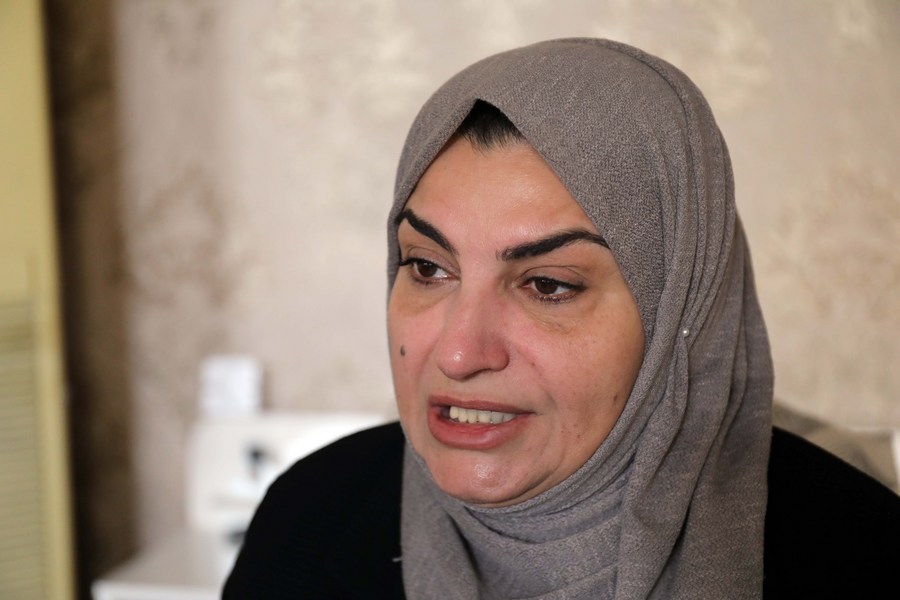
Sondos al-Lami recalls her husband who was shot dead by U.S. soldiers in a morning almost 20 years ago in Dhuluiyah, Iraq, Feb. 14, 2023. (Xinhua/Khalil Dawood)
INDELIBLE PAINS
America took eight years, eight months and 29 days to end its military occupation of Iraq, with the last combat troops leaving Iraq on Dec. 18, 2011. The war was finite by calendar, but no one can tell how long it will take for the Iraqi victims to heal the wounds inflicted by invaders.
"They said they came to set us free, to save us. But what they did turned my life into hell," said Abdullah Mahmoud Ibrahim, another resident of Dhuluiyah.
On a winter night in 2005, a U.S. missile destroyed Ibrahim's house, killing his wife, daughter, and one of his cousins.
Ibrahim miraculously survived the blast, but has been permanently disabled and wheelchair-bound. For the past 18 years, he has been carrying a urine bag due to incontinence.
"I miss my daughter and wife. I can never forgive what the Americans did," the 52-year-old widower told Xinhua. "They didn't come to Iraq to set us free. No. All they did was destroyed our lives and left."
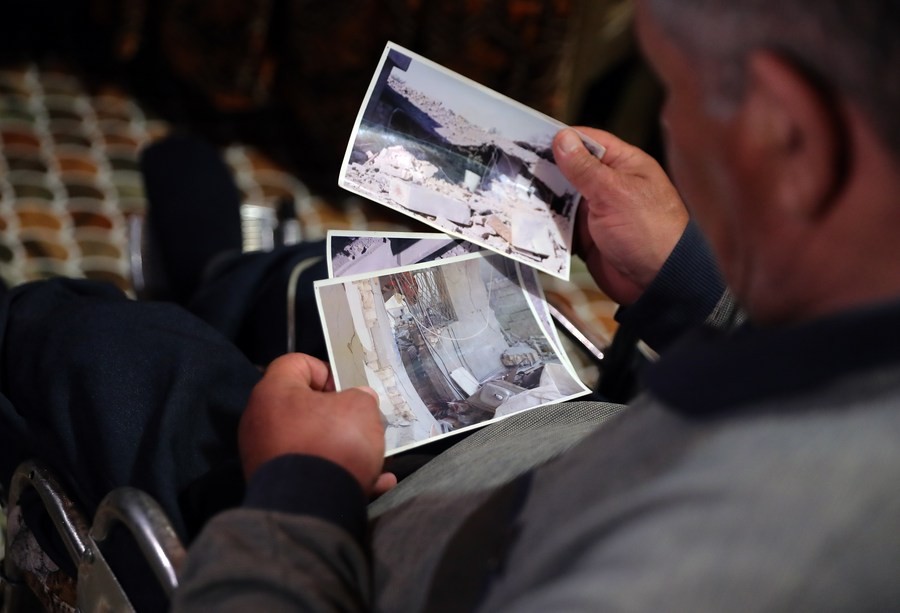
Abdullah Mahmoud Ibrahim looks at photos of his house destroyed by a U.S. missile in 2005, in Dhuluiyah, Iraq, March 6, 2023. (Xinhua/Wang Dongzhen)
While some Iraqis lost family members in the war, others lost years of freedom as the U.S.-led coalition conducted a great number of arbitrary arrests during the eight-year occupation.
Alaa Karim Ahmed was put into prison for no reason by Americans in 2003. Then a 21-year-old promising college student, he was among a group of Iraqis arrested by U.S. soldiers in the city of Samarra, some 120 km north of Baghdad, in a manhunt following a roadside bombing near a U.S. patrol.
It was a traumatic experience for Ahmed, who spent two years and a half in four U.S.-run prisons, including the notorious Abu Ghraib prison, where he was subjected to brutal physical and mental torture.
"I will never forget those difficult days of torture. I was severely beaten, handcuffed and shackled. They once hung me upside down for more than an hour," he said, showing the scars of torture still visible on his body.
After 20 years, Ahmed still keeps the identification bracelet he wore in prisons as a reminder of the ordeal he went through and the brutality of the U.S. occupation.
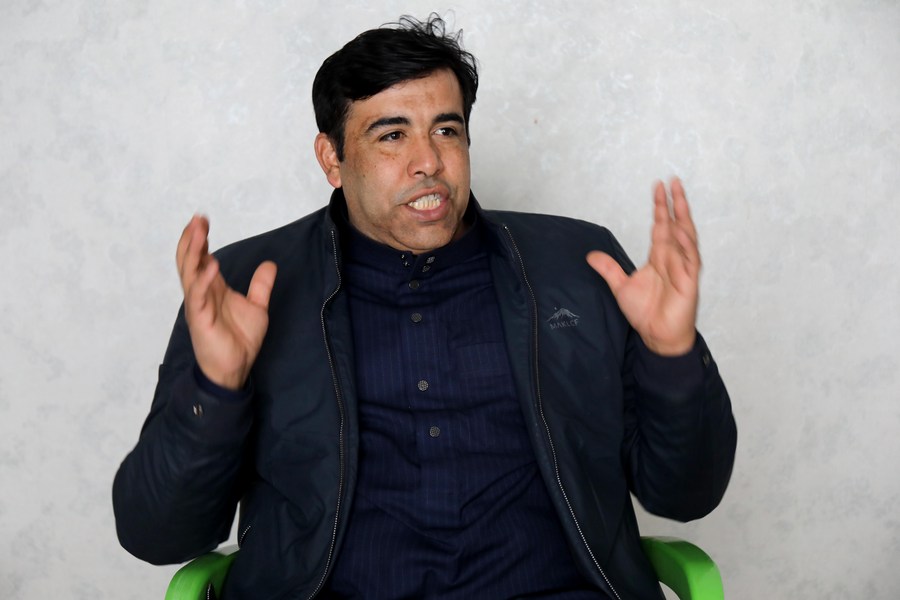
Alaa Karim Ahmed recalls his traumatic experience in U.S.-run prisons, in Dhuluiyah, Iraq, Feb. 17, 2023. (Xinhua/Khalil Dawood)
CRIMES AGAINST CIVILIANS
Iraqi civilians have been the prime victims of the U.S.-led invasion and the violence perpetrated by extremist militant groups, such as the Islamic State which once controlled large swathes of land in Iraq after the departure of the coalition troops.
The war and ensuing violence in Iraq were estimated to have killed more than 200,000 civilians and left over 9 million others displaced.
Under the U.S. forces' lenient "rule of engagement," many innocent Iraqi civilians were gunned down on the streets or at home. Iraqi political analyst Ali al-Mousa accused the coalition forces of often using excessive force during the invasion and occupation of Iraq.
Saadi al-Dhehaybah was working as a doctor in the only hospital in Fallujah, a city 69 km west of Baghdad when the U.S.-led forces attacked the city in 2004. He and colleagues put up the Red Cross and Red Crescent flags in the hospital but failed to prevent bombings.
"The whole city was leveled, and everyone was trying to escape from here. My friend tried to leave the city with his family, but they were bombed and killed on the road," al-Dhehaybah said, calling the U.S.-led assault on Fallujah one of the most brutal and inhumane slaughters against civilians in modern history.
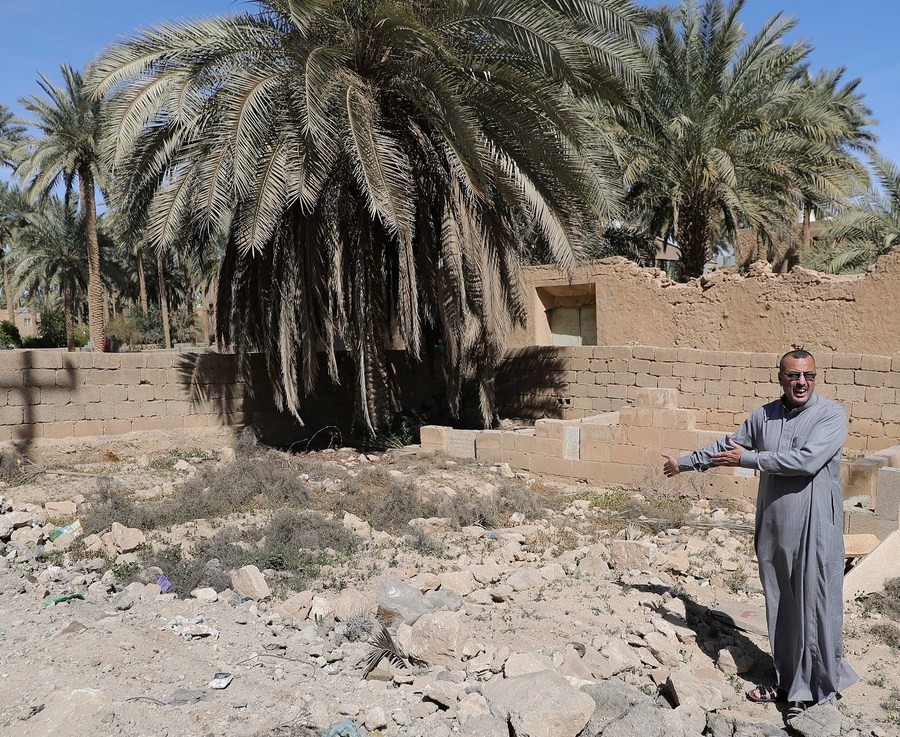
Khalid Salman Rasif recalls how U.S. soldiers stormed the homes of his relatives in Haditha, Iraq, March 7, 2023. (Xinhua/Wang Dongzhen)
Haditha, a city in Iraq's western province of Al Anbar, witnessed one of the most heinous war crimes committed by U.S. troops. A total of 24 civilians, including men, women and even a one-year-old infant, were massacred by American soldiers who retaliated for a roadside bombing in 2005.
"They were just ordinary people. They did not leave their houses to fight the Americans and just wanted to hide in there to be safe," said Khalid Salman Rasif, standing next to the grave of his uncle who was among the victims of the massacre.
On the morning of Nov. 19, 2005, after a roadside bombing killed a U.S. marine and wounded two others in a passing U.S. convoy in Haditha, U.S. soldiers conducted revenge by storming nearby homes and started random killings.
Rasif survived by hiding deep at home, but his uncle and cousin were both killed. "When I arrived at my uncle Abdul Hameed's house the next day, there was blood everywhere. The same thing happened in my cousin's house, where I discovered blood all over the place," Rasif told Xinhua.
Justice is not done yet. Seven of the eight U.S. marines involved in the massacre were released without any charges while only one was sentenced to a maximum of 90 days in prison.
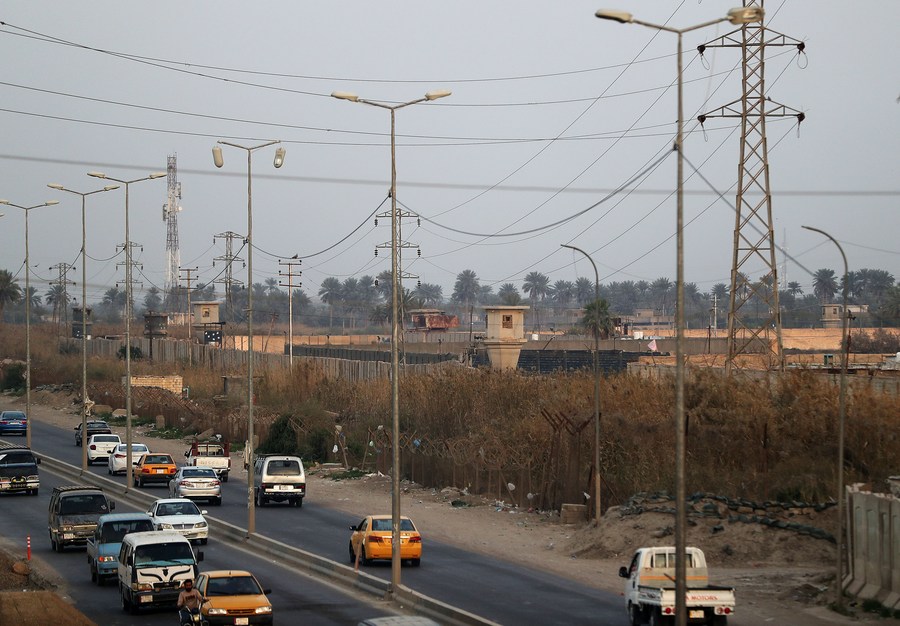
This photo taken on March 5, 2023 shows the Abu Ghraib prison (R) in Iraq. (Xinhua/Wang Dongzhen)
WAR OF LIES
When the United States and its allies invaded Iraq in 2003, there was neither declaration of war nor an endorsement of the United Nations. They simply used the pretext of destroying Iraq's weapons of mass destruction (WMD) and bringing freedom, democracy and prosperity to the country.
Until today, no trace of WMD has ever been found in Iraq.
In addition to fabricating a lie to start the war, Washington also used lies during the war to vilify their enemies and inflate unreal stories about so-called "war heroes."
Jessica Lynch, a 19-year-old female soldier, was portrayed by the U.S. military and media as a war hero who kept firing till the last bullet after her convoy was ambushed in April 2003 in Nasiriyah, southern Iraq. They even claimed that Lynch was raped and tortured after being captured by the Iraqis.
Later, American special forces "rescued" Lynch from the Iman Hussein Hospital in Nasiriyah, in an operation deliberately filmed to make her an all-American hero.
However, Khudhair Saadi, an Iraqi doctor who attended Lynch at the hospital, told Xinhua that Lynch was taken good care of in the hospital and no harm was done to her.
Even Lynch herself debunked the lie later, criticizing the glorified story about her. "I'm not about to take credit for something I didn't do," she said.
Nonetheless, the only American lie bigger than the WMDs allegation and "war heroes" propaganda is the promise to bring about democracy and prosperity to Iraq, which is still mired by political instability and economic hardship caused by long years of devastating wars.
As of today, the U.S. Department of State still warns citizens of traveling to Iraq due to "terrorism, kidnapping, armed conflict, and civil unrest," the full set of side effects of the U.S. "democracy crusade."
"I used to believe the American propaganda, thinking it can bring a better life to the country. But I couldn't be more wrong," said al-Dhehaybah. "The United States is a brutal aggressor who tries to rule the world, and Iraq is just one of the victims."
(Video reporters: Yang Yiran, Chen Mengyang, Dong Yalei, Fan Shuaishuai and Wang Shang; video editors: Yu Jiaming and Zhang Yuhong)■








